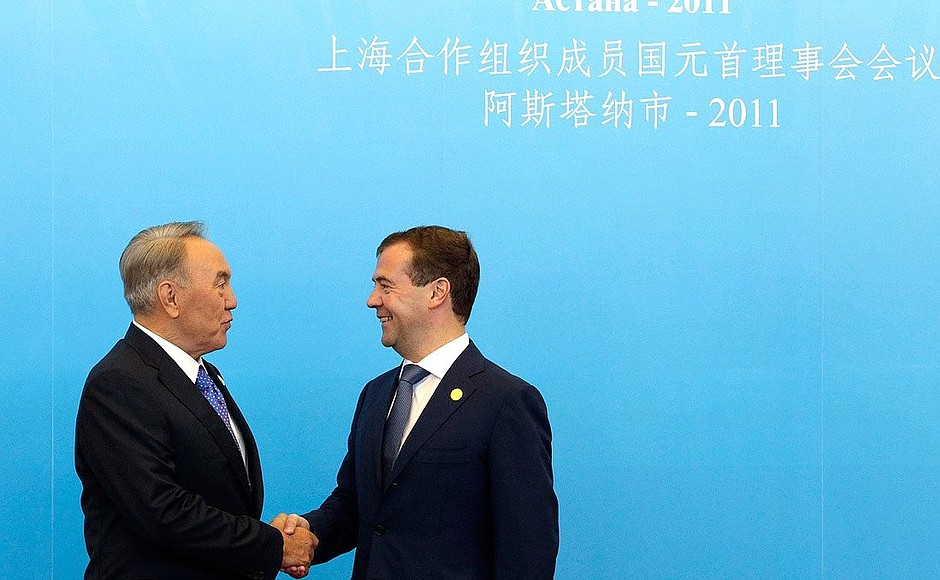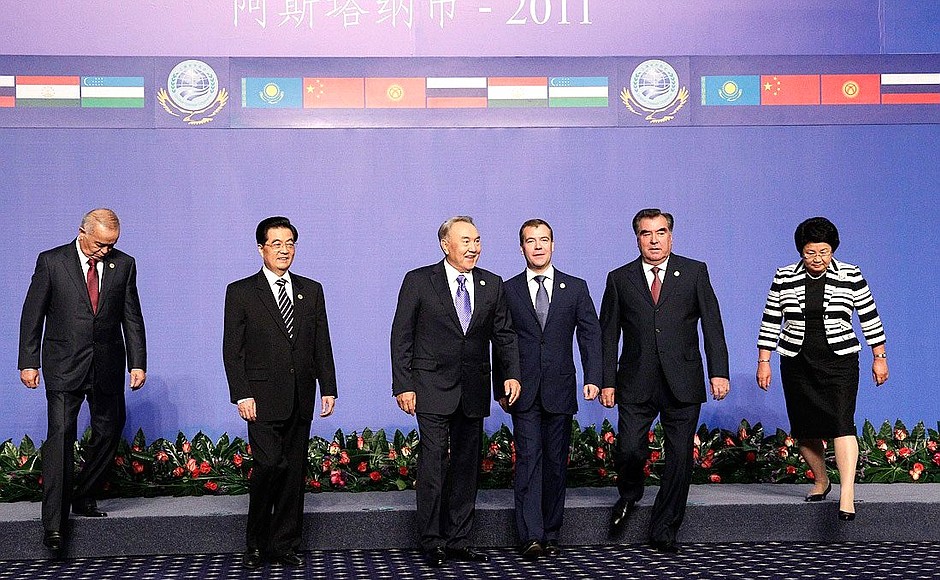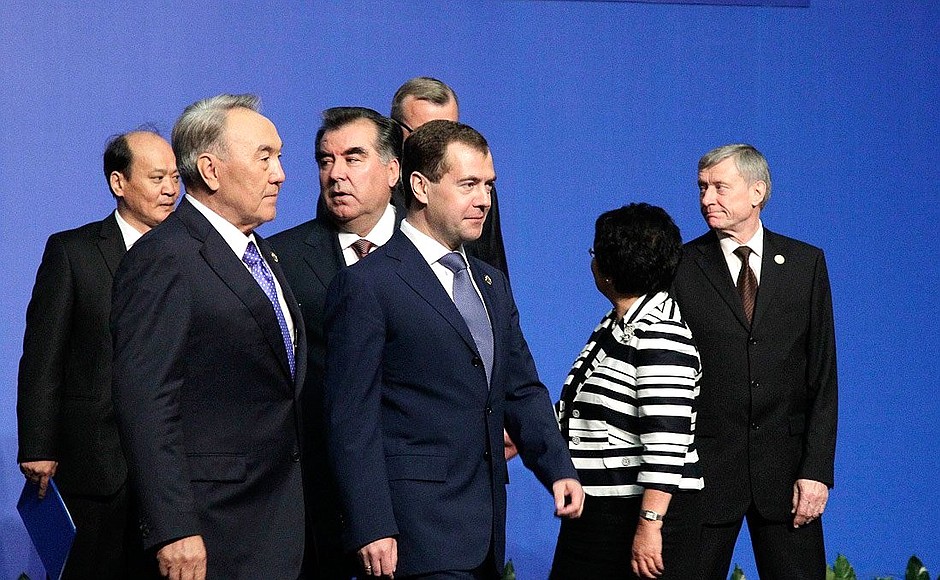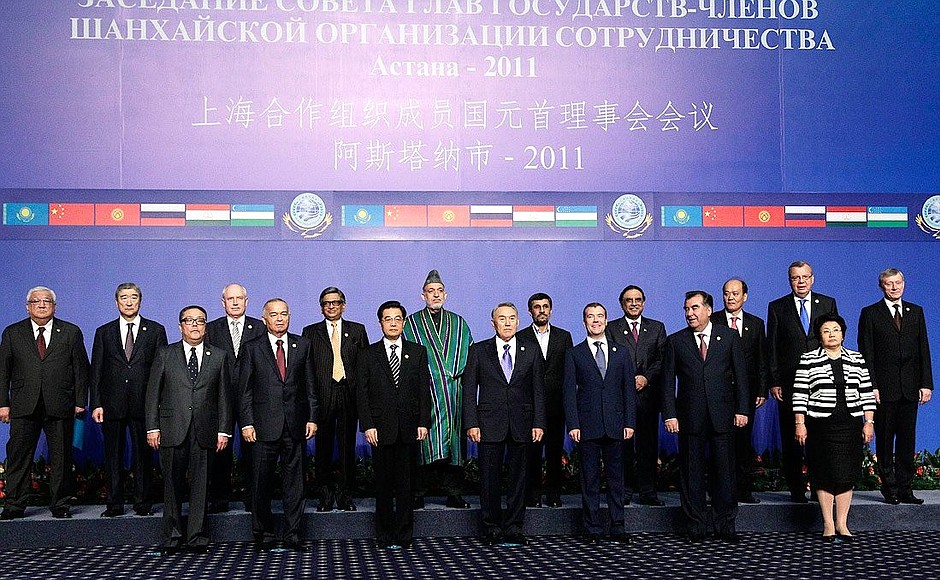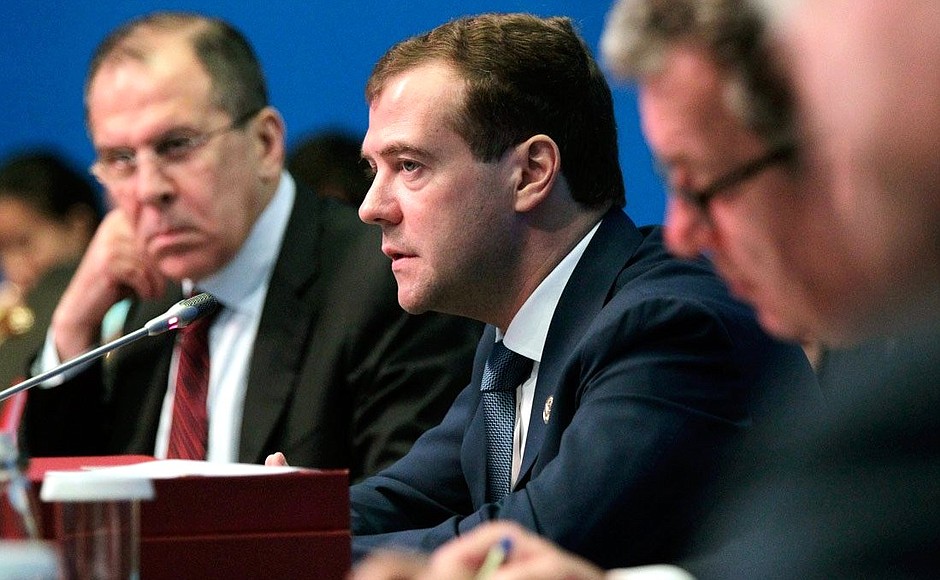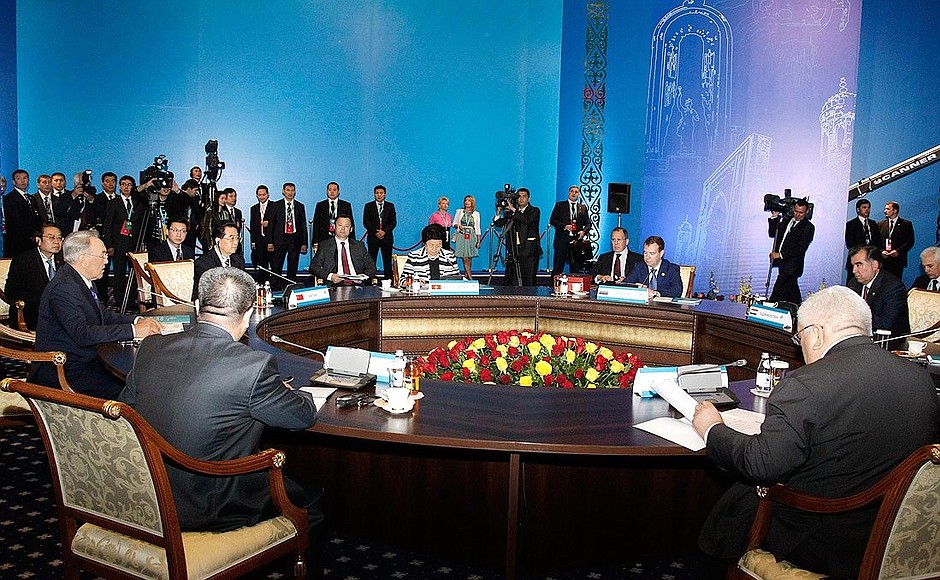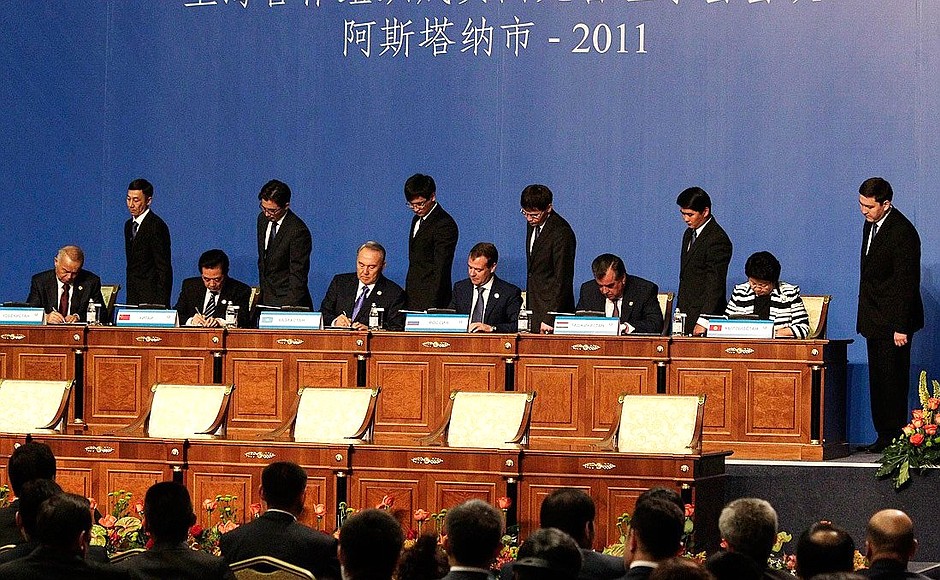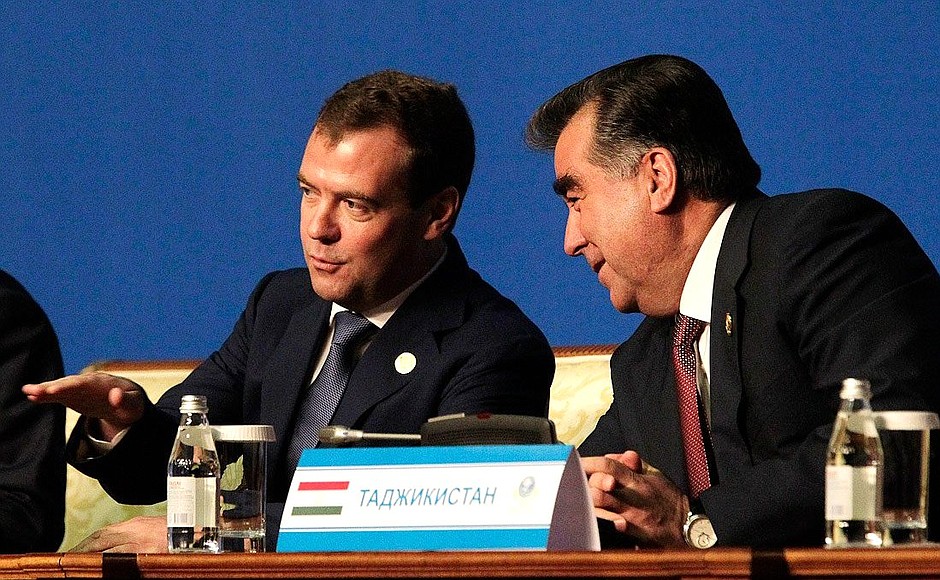Along with the presidents of Russia, China, Kazakhstan, Kyrgyzstan, Tajikistan, and Uzbekistan, delegations from India, Iran, Mongolia, and Pakistan, which have observer status in the SCO, took part in the summit.
Guests at the Astana summit included the presidents of Afghanistan and Turkmenistan, and representatives of international organisations, including the UN, CIS, EurAsEC, CSTO, and ASEAN.
The heads of the SCO member states adopted the Astana Declaration summing up the summit’s results.
The declaration gives an assessment of current international relations and today’s threats and challenges. In particular, the SCO members expressed serious concern with regard to the instability in North Africa and the Middle East, called for efforts to stabilise the situation in the region as swiftly as possible, and noted that internal conflicts and crises must be settled through exclusively peaceful means and political dialogue, and that the international community should act strictly on the basis of international law. In this respect, the SCO members stressed the need to end the armed confrontation in Libya and for all the parties involved to comply strictly with UN Security Council resolutions 1970 and 1973.
The heads of state expressed their desire to strengthen and develop ties with the United Nations and stressed the need to put together a comprehensive approach to reforming the UN and its Security Council. The SCO member states see the UN as a cornerstone in international counter-terrorist cooperation and consider it essential to work together to implement the UN Global Counterterrorism Strategy.
The SCO members called for strict compliance with the provisions of the Nuclear Non-Proliferation Treaty and noted the importance of establishing a nuclear weapons-free zone in Central Asia.
The SCO members share the view that unilateral and unlimited development of missile defence systems by any one country or group of countries could damage strategic stability and international security. The SCO members called for outer space to be used for peaceful purposes only and stressed the need to work within the Geneva Disarmament Conference to draft a legally binding treaty preventing the deployment of weapons in space and the use of force or threat to use force against objects in space.
The SCO members are ready to bolster cooperation on information security.
The Declaration also sets out the SCO position on combating terrorism, separatism, extremism, trans-border crime, and drug trafficking.
The SCO supports the development of Afghanistan as an independent, neutral, peaceful and prosperous country. The SCO members will continue helping the friendly people of Afghanistan in their efforts to rebuild their country.
In the economic sphere, the SCO members call for continued reform of the international financial regulation system and plan to carry out big joint projects in such sectors as transport and communications infrastructure, agriculture, innovative and energy-saving technology, trade and tourism. The SCO members will continue their cooperation on disaster prevention.
The heads of state called for continued efforts to expand trade and economic ties and investment cooperation in the member countries, and also spoke of the need to work together with the observer countries and dialogue partners and make use of their potential too.
The summit approved the SCO Anti-Drug Trafficking Strategy for 2011–2016, and the action programme for its implementation. Also approved were a standard memorandum on the obligations of countries applying for membership in the SCO, and the report of the Council of the Shanghai Cooperation Organisation Regional Counter-Terrorism Structure on its activities in 2010.
